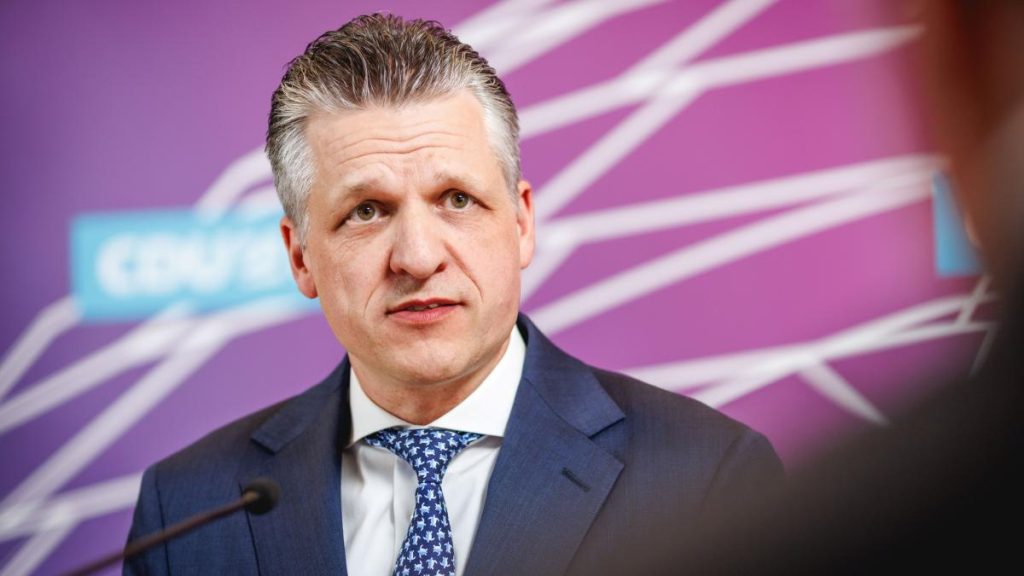CDU politician Thorsten Frei has suggested Senegal and Ghana as potential options for asylum procedures in third countries. He believes that other African countries are also capable of taking on this responsibility. He emphasizes that countries like Senegal and Ghana are considered safe countries of origin and meet legal requirements. Frei is confident that there are several African countries willing and able to handle such tasks under the rule of law.
Frei emphasizes the importance of engaging with these countries on an equal footing. He suggests that a comprehensive agreement could be made, possibly including special access to the European internal market or job market, as well as educational cooperation. The CDU had included comprehensive agreements on asylum procedures in third countries as a goal in their recently adopted basic program. The British government, on the other hand, plans to deport irregular migrants to third countries such as Rwanda without allowing them to lodge an asylum application, requiring them to seek asylum there instead.
The United Nations, human rights organizations, and the opposition in the UK have criticized the British government’s plan. The UK Supreme Court deemed the plan illegal due to concerns about the asylum process in Rwanda. Despite this, the government passed a law declaring Rwanda a safe country, overriding objection from the House of Lords. The proposal has faced backlash and skepticism from various sectors, including legal and humanitarian concerns.
The discussion about asylum procedures in third countries, particularly in Africa, raises important legal and ethical considerations. While some European countries are exploring partnerships with African nations to manage migration flows, concerns about human rights, legal procedures, and international cooperation remain at the forefront. Collaboration between different countries and regions will be crucial in addressing migration challenges while upholding fundamental rights and responsibilities.
The proposal to delegate asylum procedures to third countries has sparked debate and controversy, with critics questioning the legality, ethics, and practicality of such arrangements. Advocates argue that comprehensive agreements can ensure fair and efficient asylum processes while addressing regional and global migration issues. Finding common ground and engaging in meaningful dialogue will be essential in navigating the complexities of migration policy and international cooperation. As discussions continue, it is imperative to prioritize human rights, legal standards, and ethical considerations in shaping asylum policies and partnerships.















